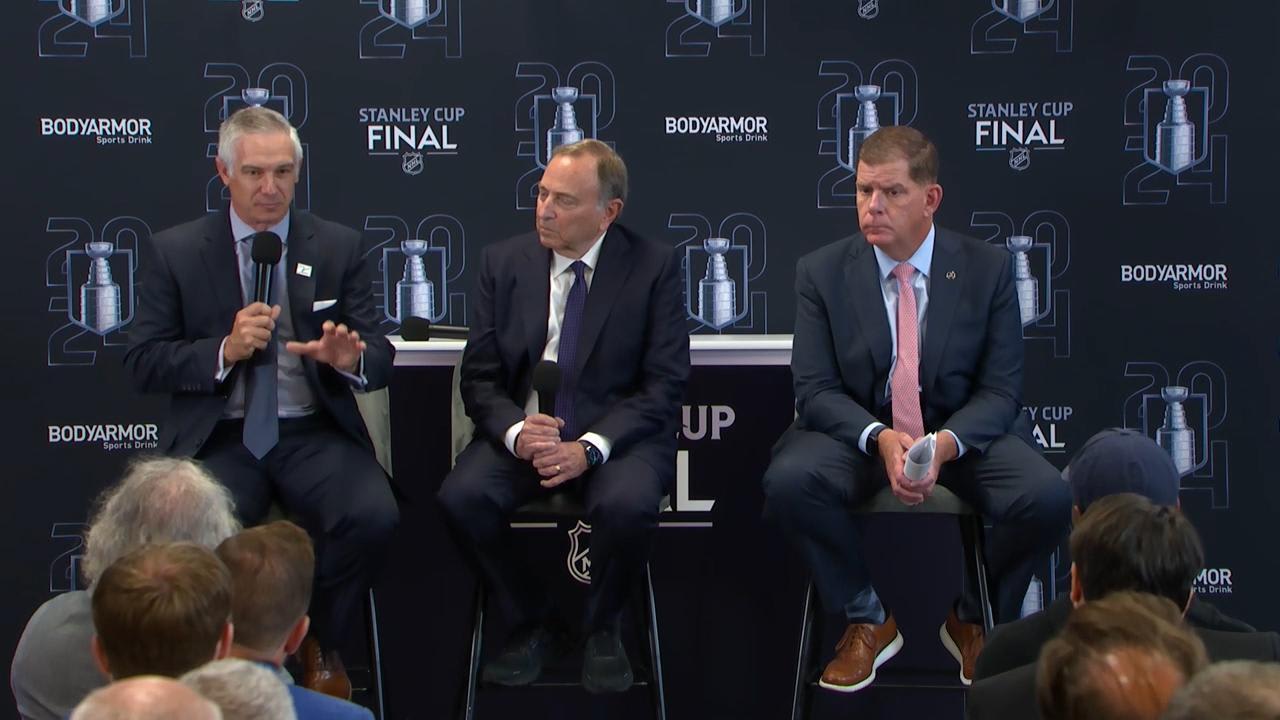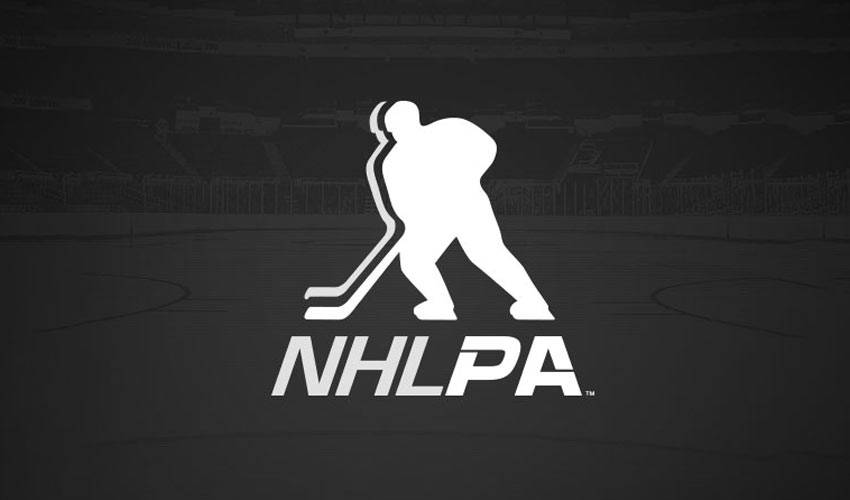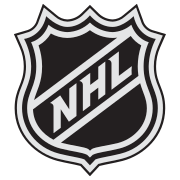As is tradition Gary Bettman and Bill Daly met with the media before the first game of the NHL final on Saturday night. They began with a segment with Marty Walsh, the new head of the NHLPA.
The first portion is about the NHLPA's partnership with cancer research charity the V Foundation.

Next up was salary cap news. The upper limit has been finalized at $88 million, which is slightly more than the maximum allowed in the current CBA. That means the NHL and the NHLPA negotiated a small extra increase.
Before I dig into the rest of the money news, it's time once again for a brief explanation of how the salary cap and escrow works.
- Sometime in June (as in Saturday night), the NHL sets a cap for each team based on their estimate of expected revenue growth. This estimate, as defined in the Pandemic MOU CBA extension, uses a new method that is based on the prior three year's revenue and is capped at 5%. They used to just use the current year that wasn't even over yet. The NHL year is July 1 to June 30.
- The NHL and NHLPA can negotiate an increase above 5%.
- The final cap number is announced and then, before the new season starts, an escrow % is agreed upon between the NHL and the NHLPA. For the next two seasons, the MOU sets that at 6%.
- Escrow comes off of every NHL players’ salary cheques for the entire season, and then it sits in a bank account, idling away, usually for almost a full calendar year.
- After June 30, the NHL teams have to report their Hockey Related Revenue (HRR), as outlined in the NHL CBA, to the league. The league assembles all those figures, confirms the various teams are doing it accurately and correctly and figures out the total HRR that was actually earned. This legitimately takes a lot of time. And the NHLPA has to sign off on all of this as well.
- The full HRR number is split 50-50, and if that 50% number is at or more than the salary paid out, everyone is thrilled, and the players get all of their escrow back. Not only that, the owners have to top the pool up with some extra money. If the 50% number is less than the revenue estimate, only some of the escrow goes to the players with the rest going to the owners.
- A full year after the hockey season ends, everyone has in their hands their fair share of the NHL’s actual earnings from that year.
Daily Faceoff is reporting that this year, the entire escrow pool might get paid back. Remember, they can't know for sure until the final HRR calculation happens. There may even be a top-up. This is raising again the question about this current year's cap and if it should have been higher. You can't change the past, but it seems like it was a choice to get to a point where the escrow got all paid back – which players like.
The success in revenue generation seems to have been anticipated in advance, as it always seems to be.
🚨News🚨
— PuckPedia (@PuckPedia) May 31, 2024
The average league salary has now surpassed the 19-20 amount.
As a result, for the 1st time since 2020, the arbitration walk away # has increased.
Teams can now only walk away from an arbitration award of $4.74M or more (was $4.54M since 2020)https://t.co/UsCpXhXj8I
The average league salary is the actual average of all the salaries (not cap hits) of all the players in the NHL. You can actually see the total salary paid per team on the PA website to everyone under contract and on the roster – so no players loaned to junior, but all players loaned to the AHL who are on NHL deals.

One of the reasons for the higher salary cap and the optimism about escrow is the high ratings for the playoffs and the increased sponsorship revenue. Bettman expressed optimism that revenue will continue to rise at the kind of levels we've seen since the Pandemic.
Bettman credits the high scoring nature of the NHL for the popularity, and therefore economic growth. Bettman, naturally also likes that playoff position races went down to the wire, making more regular season games meaningful. Parity is good for business.
There was a question from Pierre LeBrun to Daly about LITR and this is of course about teams putting high-cap-hit players on LTIR at the deadline and loading up for the playoffs. Daly has been getting opinions from teams about the system. "No one thinks it's a major competitive issue in the short term," is the key quote. And he emphasizes that any change would be negotiated with the NHLPA. He didn't rule out doing that before the next CBA discussion, but I'm not expecting it.
Of note, the NHL has the right to examine medical records under the current CBA.
You can watch the whole media availability here where several other issues were discussed.









Comment Markdown
Inline Styles
Bold: **Text**
Italics: *Text*
Both: ***Text***
Strikethrough: ~~Text~~
Code: `Text` used as sarcasm font at PPP
Spoiler: !!Text!!